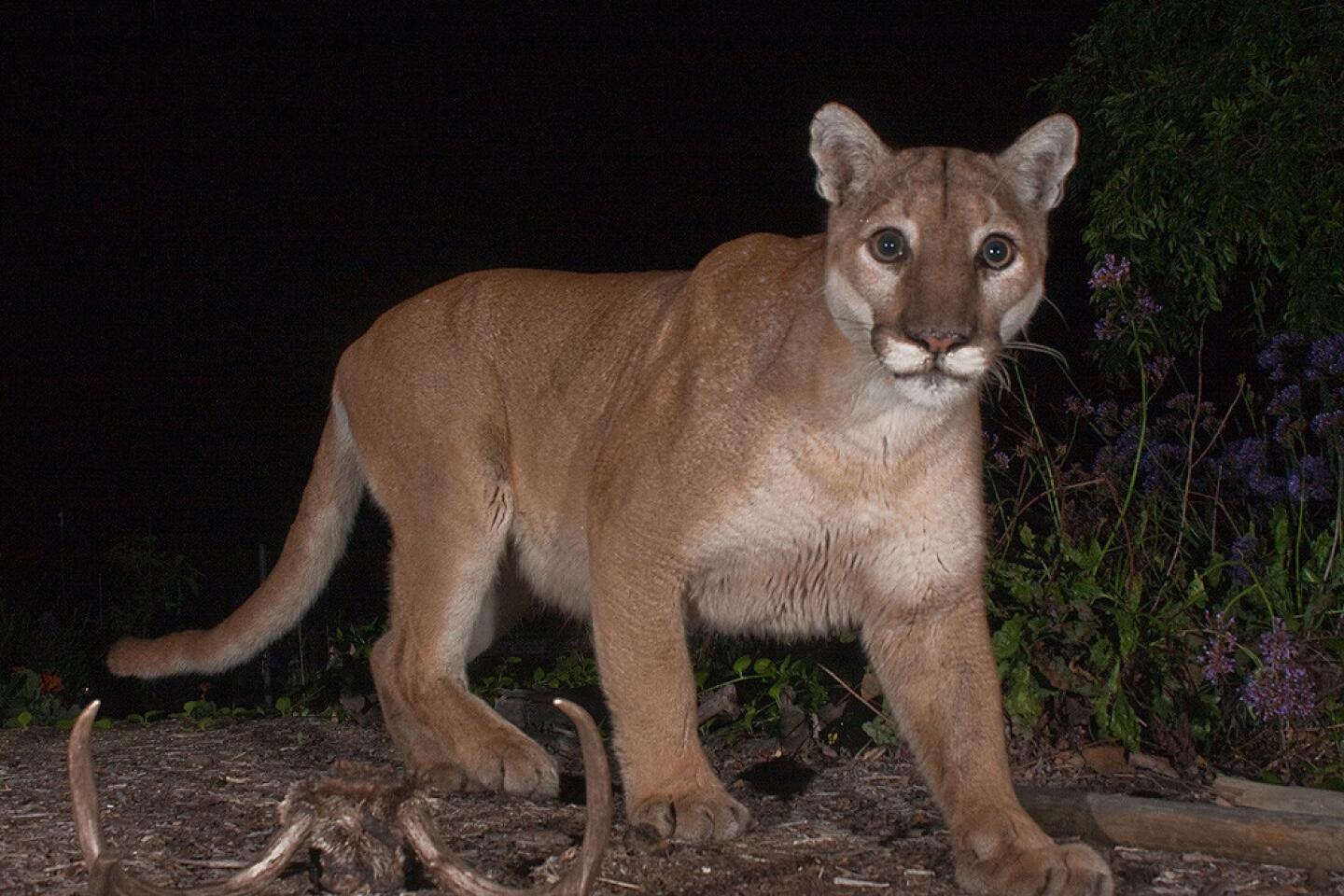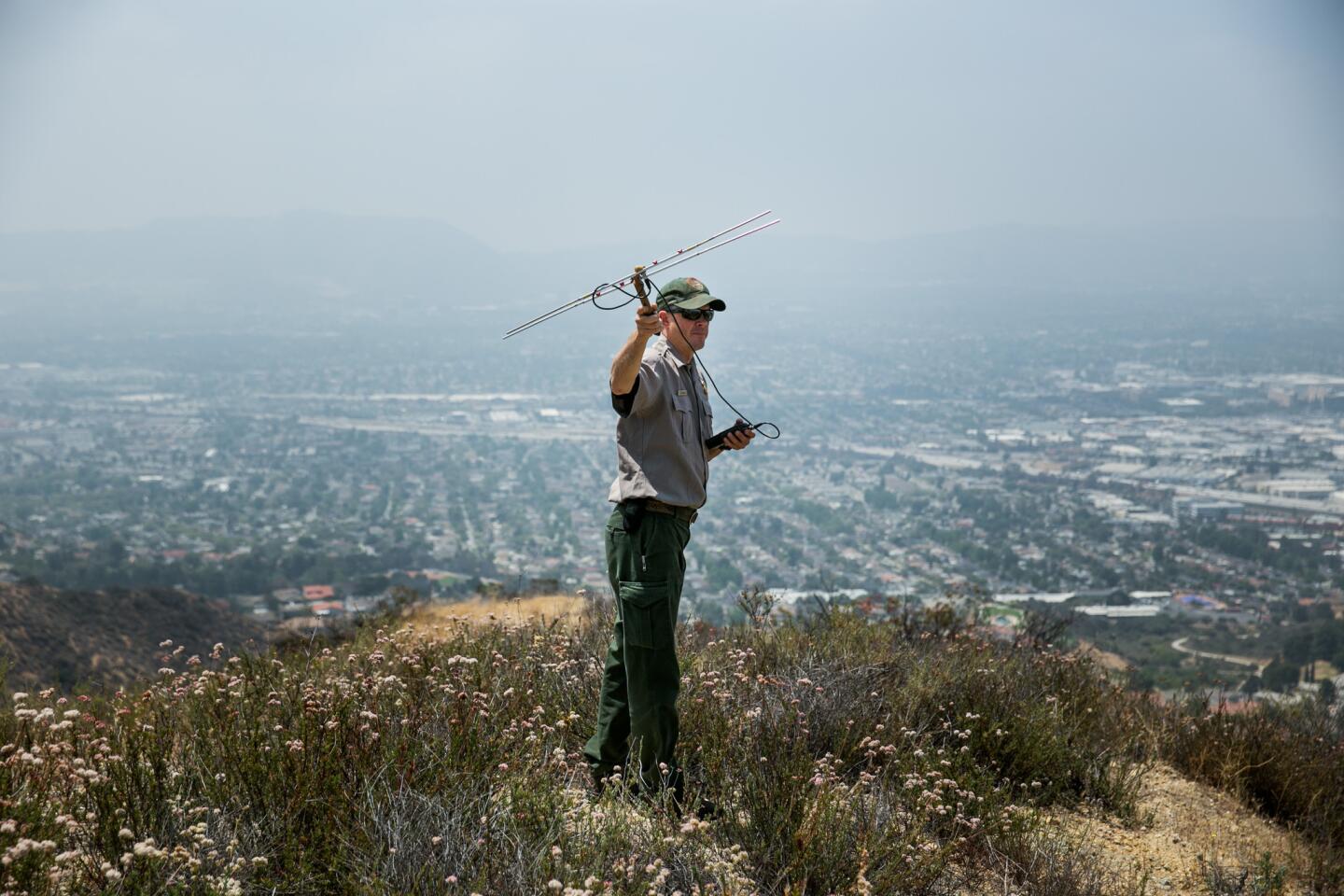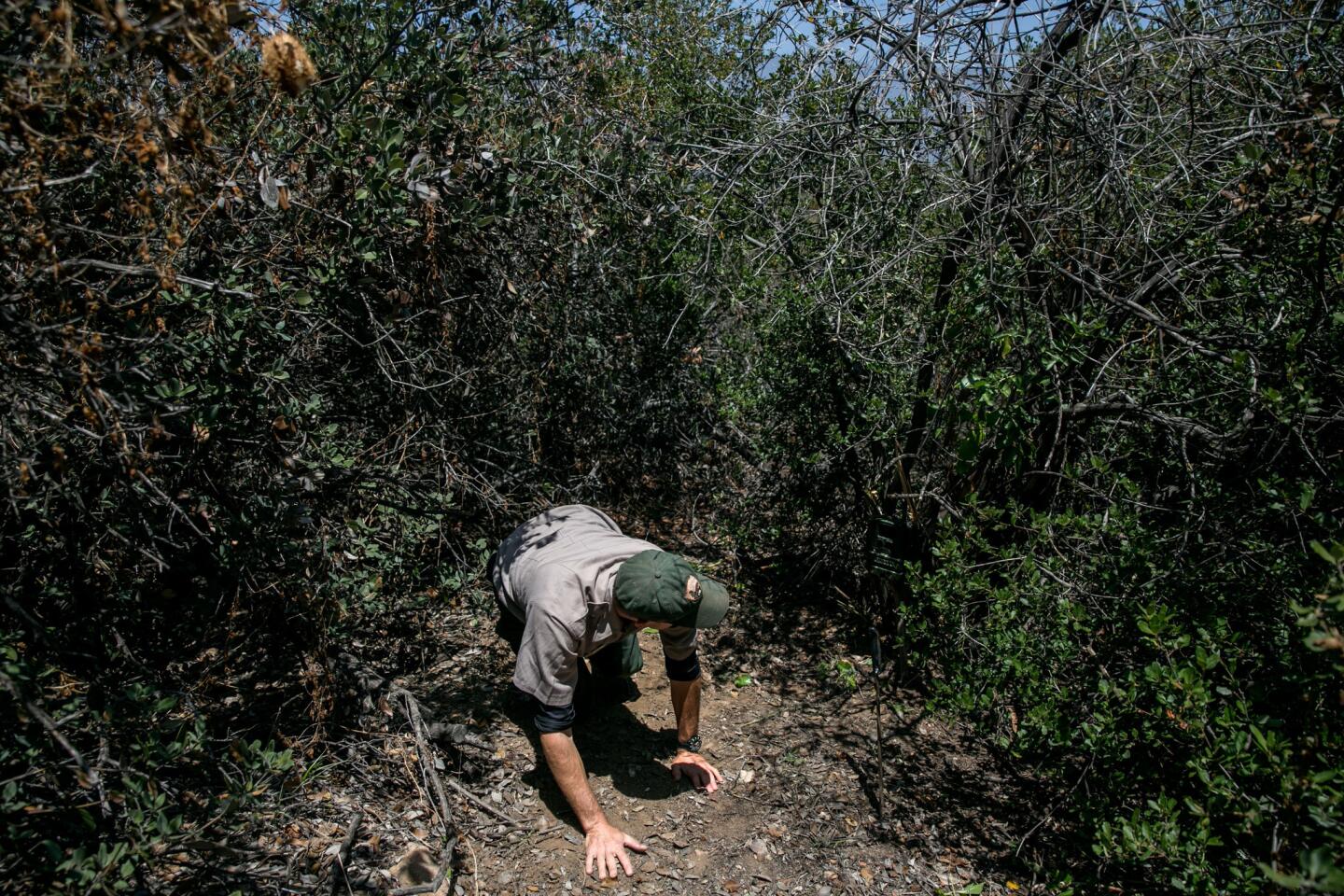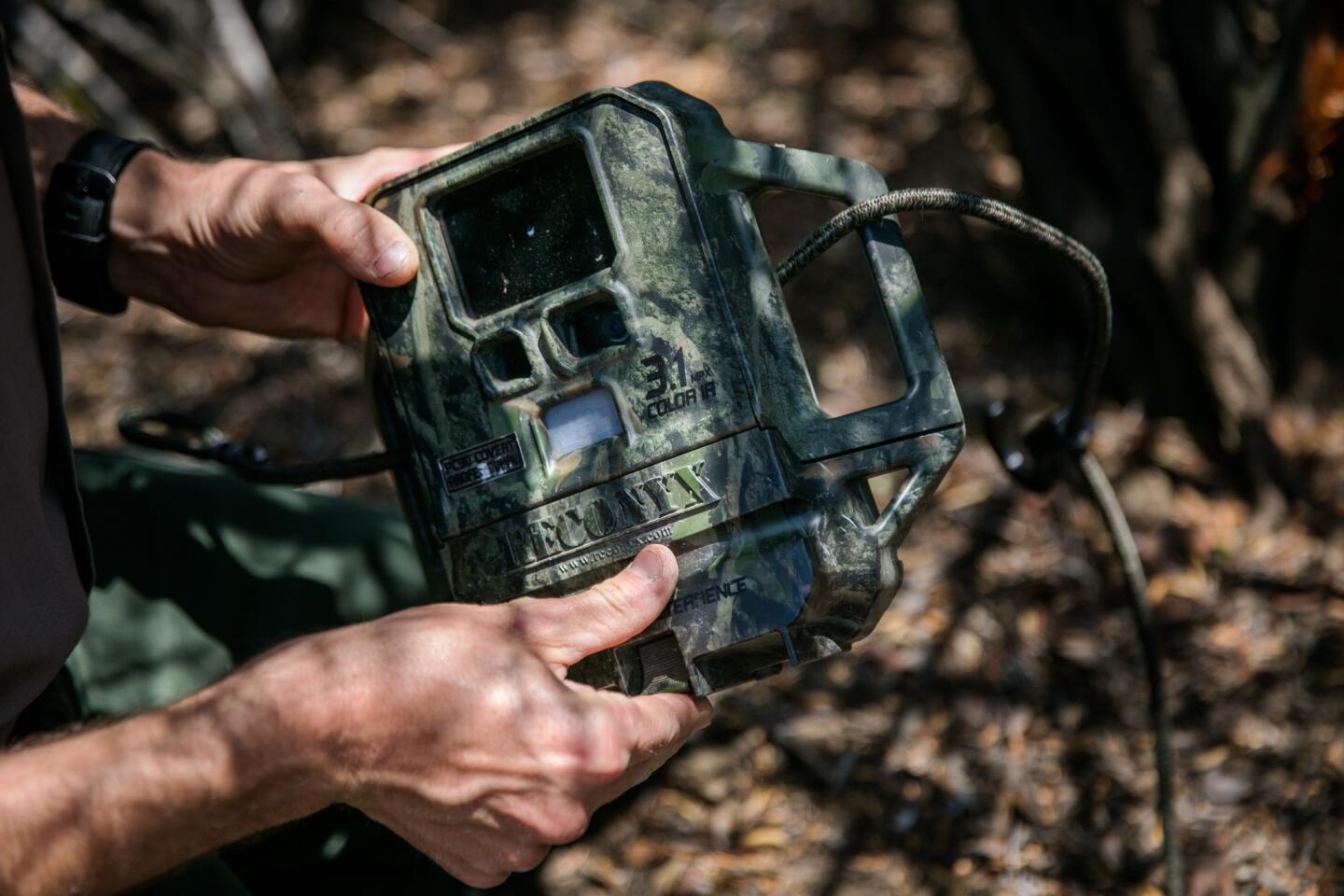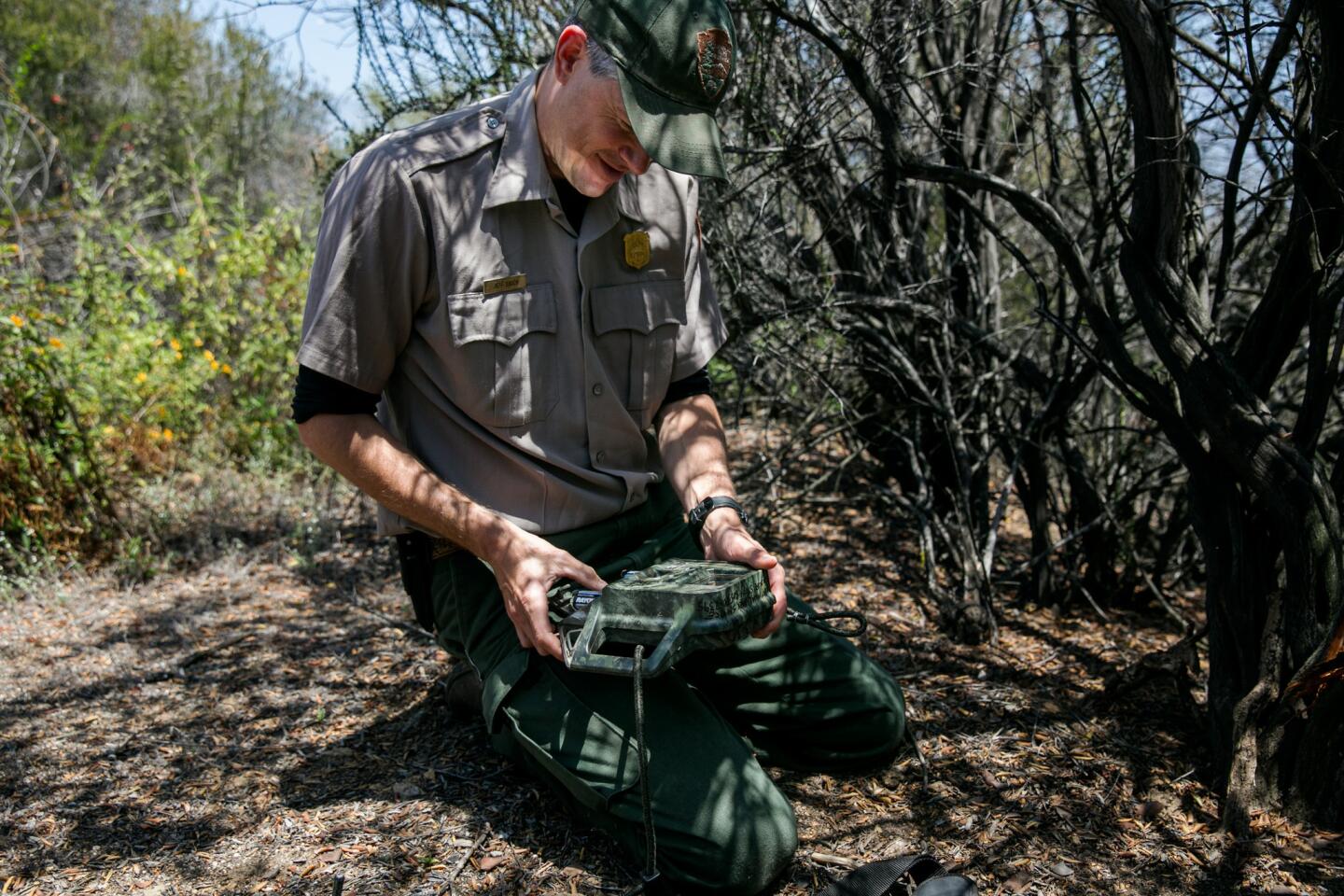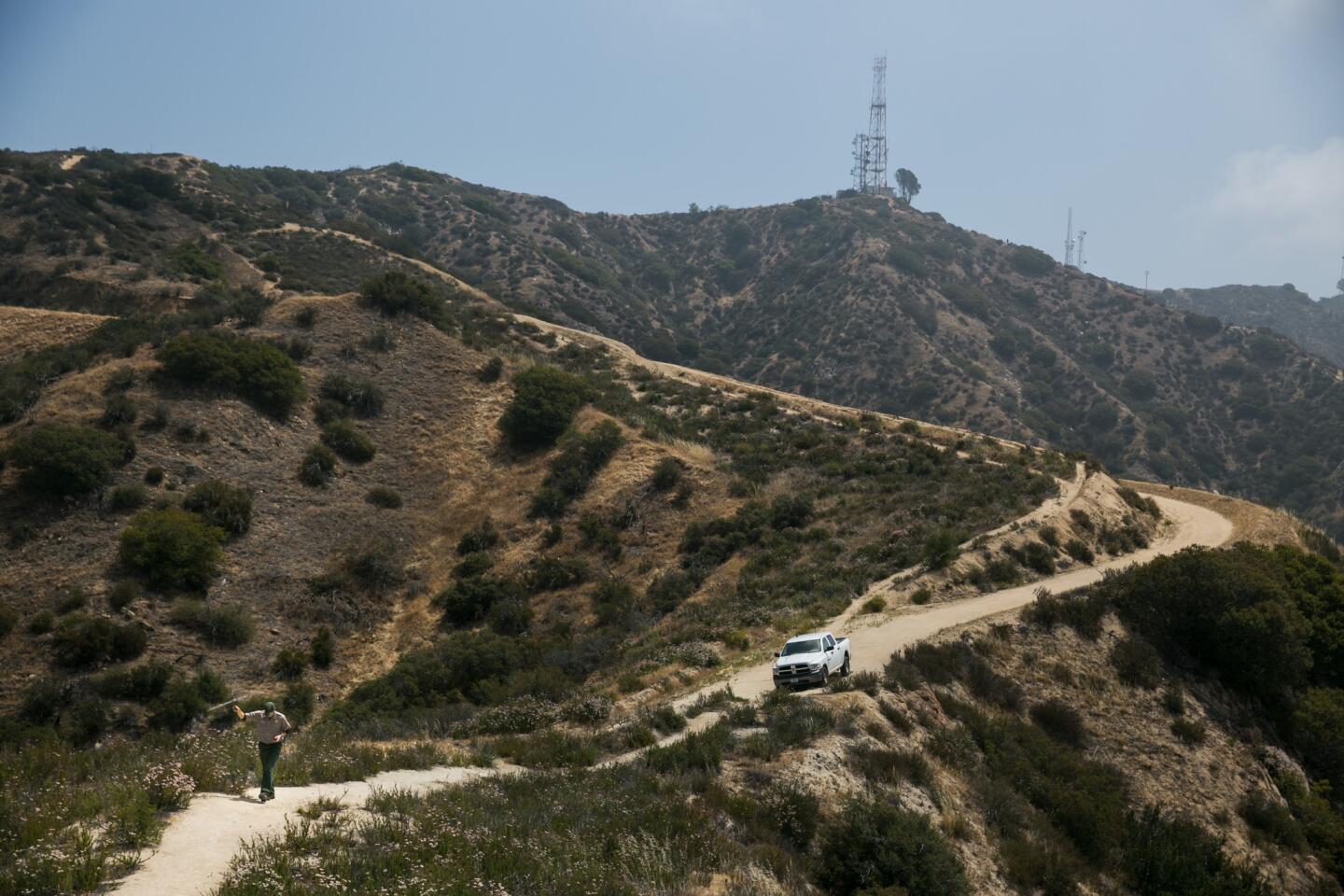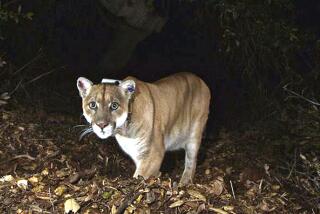Photogenic mountain lion P-41 found dead in the Verdugo Mountains
- Share via
The mountain lion P-41, whose movements through the Verdugo Mountains were documented in stunning photographs by citizen scientists, has been found dead.
Residents found the male puma Wednesday near Shadow Hills, National Park Service officials said.
The cause of death had not been determined. The cat had been dead for several days, and the carcass was decayed, said Kate Kuykendall, spokeswoman for the Santa Monica Mountains National Recreation Area. The state Department of Fish and Wildlife will conduct a necropsy in the next couple of weeks, she said.
At about 10 years old, P-41 was considered to be of advanced age for a mountain lion in the wild. But his death could have been hastened by causes including rat poison and the La Tuna fire, which burned more than 7,000 acres in the Verdugos last month.
“P-41 had already overcome a number of challenges to survive in a relatively small home range with habitat fragmented by roads and development,” said Jeff Sikich, a biologist for the recreation area. Sikich captured and collared P-41 in 2015.
The approximately 130-pound animal was a subject of amateur scientists Johanna Turner and Denis Callet, whose photographs were featured in a 2015 Times article.
Turner, a sound effects editor for Universal Studios, makes a hobby of setting up motion-controlled cameras to capture shots of Southern California’s mountain lions in their habitats.
She said Thursday that she photographed P-41 thousands of times, including hundreds of hours of video, and provided the images to the National Park Service for research. Her last photo was Aug. 3.
Though she never saw P-41 in person, she believes the cougar interacted with her through her camera.
“If I put a camera in a new spot, sometimes if he wasn’t in the mood to get a flash bulb, he would come up, stop, look around and leave,” she said. “I would get pictures of his butt.”
Turner said she believes that P-41 fathered two litters but that none of his four offspring reached adulthood in the wild. Two were hit and killed on freeways, and two were captured and live in a wildlife refuge in Riverside, she said.
National Park Service biologists had been tracking P-41 since May 2015, hoping to learn about his movements, especially whether he would remain in the Verdugos or also use the southern San Gabriel Mountains as part of his territory, which would involve crossing the 210 Freeway.
The agency said Thursday that GPS data collected during the two years P-41 was tracked showed he did not cross the 210 or use the San Gabriels, but that his territory extended across the 2 Freeway into the San Rafael Hills.
His movements after the La Tuna fire were not known because his tracking collar failed this summer.
Residents using remote cameras had photographed a female mountain lion in the Verdugo Mountains after the La Tuna fire, but not P-41, the National Park Service said.
“We are grateful to the resident who reported the dead mountain lion,” said Julianne Taylor, a scientist with the Department of Fish and Wildlife. “It’s important to understand the mountain lions’ entire life history, which includes mortalities and cause of death.”
Since 2002, the National Park Service has been studying mountain lions in and around the Santa Monica Mountains to determine how they survive in an increasingly fragmented and urbanized environment.
Kuykendall said scientists think the Santa Monica Mountains can support 10 to 15 pumas, but only P-41 was being tracked in the Verdugos.
ALSO
Deputies search for man who tried to kidnap 12-year-old girl during soccer practice
Two bodies pulled from wrecked car in Kings River during search for missing San Diego couple
More to Read
Sign up for Essential California
The most important California stories and recommendations in your inbox every morning.
You may occasionally receive promotional content from the Los Angeles Times.
